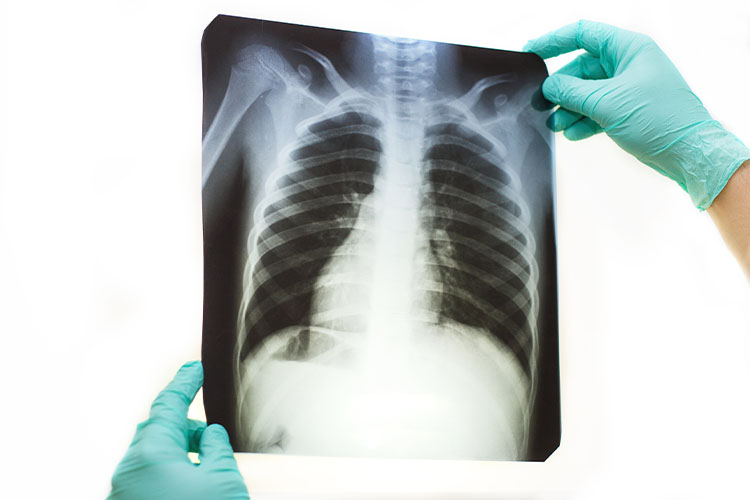Overview
Dilated cardiomyopathy (DCM) is a condition in which the heart’s ventricles become enlarged and weakened, impairing the heart’s ability to pump blood efficiently. This can lead to heart failure and other complications if not managed appropriately. Treatment for DCM focuses on improving heart function, alleviating symptoms, and preventing further damage.
A combination of lifestyle modifications, medications, and medical procedures is often recommended to manage DCM. Medications, such as beta-blockers, ACE inhibitors, and diuretics, are commonly prescribed to help the heart work more effectively and reduce fluid buildup. In some cases, devices like pacemakers or implantable cardioverter-defibrillators (ICDs) are used to regulate the heart’s rhythm or prevent sudden cardiac arrest. For severe cases, a heart transplant may be considered as a last resort.
Early diagnosis and treatment are crucial in managing Dilated cardiomyopathy (DCM) and enhancing quality of life. With appropriate interventions, many individuals with dilated cardiomyopathy can live fulfilling lives, even though the condition may require lifelong management.
Table of Contents
When to See a Doctor

If you experience symptoms that may indicate dilated cardiomyopathy, it’s important to consult a doctor. Common signs of DCM include fatigue, shortness of breath, swelling in the legs, ankles, and feet, or irregular heartbeats. These symptoms can gradually worsen over time and may significantly affect daily life if left untreated. Seeking prompt medical attention can lead to an early diagnosis and potentially prevent further heart damage.
What Type of Doctor to Seek
A primary care physician can be your first point of contact if you notice symptoms of dilated cardiomyopathy. They may refer you to a cardiologist, a specialist in heart conditions, who is better equipped to diagnose and manage DCM. If advanced heart failure is suspected, a heart failure specialist may also be involved in your care to help manage complex cases.
What to Expect From Your First Doctor Visit
During the initial visit, the doctor will ask about your medical history, family history of heart disease, and any symptoms you’ve experienced. A physical examination will be conducted, focusing on signs of heart failure, such as fluid retention or abnormal heart sounds.

To confirm a diagnosis, your doctor may order several tests, including:
- Echocardiogram. This test evaluates the size, structure, and function of the heart’s chambers.
- Electrocardiogram (ECG). An ECG helps detect any irregular heart rhythms.
- Blood tests. Blood tests are used to check for markers of heart failure or potential underlying causes.
- Chest X-ray. This imaging test assesses heart enlargement or fluid buildup in the lungs.
- Cardiac MRI. A cardiac MRI provides detailed images of the heart, especially useful if other tests are inconclusive.
After gathering the results, the doctor will discuss potential treatment options and lifestyle changes to help manage your condition. Depending on the severity, a treatment plan may include medications, lifestyle modifications, and potentially medical devices or surgical options.
Dilated Cardiomyopathy Treatment Options
The treatment options for dilated cardiomyopathy (DCM) vary depending on the severity of the condition. If detected early, medication may be sufficient to manage the symptoms. However, in more severe cases, surgical intervention may be necessary to implant a heart-assisted device. In the most advanced stages, a heart transplant might be considered if the heart’s function continues to deteriorate.
The following are common treatments for managing dilated cardiomyopathy:
- Medications. While it’s not possible to restore the heart muscle to its original size, medications can help strengthen the heart and slow its enlargement. Common medications prescribed for DCM include:
- Angiotensin-converting enzyme (ACE) inhibitors. These help lower blood pressure by widening blood vessels, reducing the workload on the left ventricle.
- Angiotensin II receptor blockers (ARBs). If a patient cannot tolerate ACE inhibitors, ARBs are often prescribed as an alternative, performing similar functions in lowering blood pressure.
- Beta-blockers. Beta-blockers help reduce symptoms such as palpitations by slowing down the heart rate and lowering blood pressure.
- Diuretics. Diuretics help relieve swelling (edema) by increasing urine output, which removes excess fluid from the body.
- Digoxin. This medication helps alleviate fatigue and reduces the risk of heart failure by improving the heart’s ability to pump blood.
- Blood-thinning medications. These prevent blood clots from forming, as DCM can sometimes lead to blood thickening and clot formation.

- Heart-assisted devices through surgery. In severe cases, surgery may be performed to implant a heart-assisted device. These devices help the heart function more effectively and may include:
- Biventricular pacemakers. This device strengthens heart contractions and helps synchronize the left and right ventricles, promoting efficient heartbeats.
- Implantable cardioverter defibrillators (ICDs). For patients experiencing frequent palpitations, which may signal an increased risk of heart failure, an ICD can be implanted. This device can deliver an electric shock to the heart when it detects dangerously fast heartbeats.
- Left ventricular assist devices (LVADs). This device is implanted either in the chest or abdomen and is used when other heart-assisted devices are not suitable. LVADs are more complex to install but can provide significant support to the heart.
- Heart transplant. If a suitable donor heart becomes available, a heart transplant may be an option for patients with severe DCM. This surgical procedure involves replacing the damaged heart with a healthy donor heart, offering a chance for a significantly improved quality of life and heart function.
Treatment for DCM focuses on managing symptoms, improving heart function, and preventing further complications. Early intervention, consistent monitoring, and adherence to prescribed treatments can improve outcomes and help patients maintain a better quality of life.
Dilated Cardiomyopathy Prognosis
The prognosis for dilated cardiomyopathy (DCM) varies based on the severity of the condition, the underlying cause, and how well it responds to treatment. While DCM is a chronic condition that cannot be cured, many people can manage their symptoms effectively and lead a fulfilling life with the right care.
For some individuals, medications, lifestyle changes, and medical devices can improve heart function and control symptoms, allowing for a relatively normal quality of life. Others, especially those with severe cases or who develop complications such as heart failure or arrhythmias, may face more significant limitations and health risks.
Regular follow-up care and adherence to treatment are essential for managing DCM effectively. In advanced cases where medications and devices no longer work, a heart transplant may be considered. Early diagnosis, consistent management, and lifestyle adjustments can all contribute to a better prognosis and quality of life for those living with dilated cardiomyopathy.


